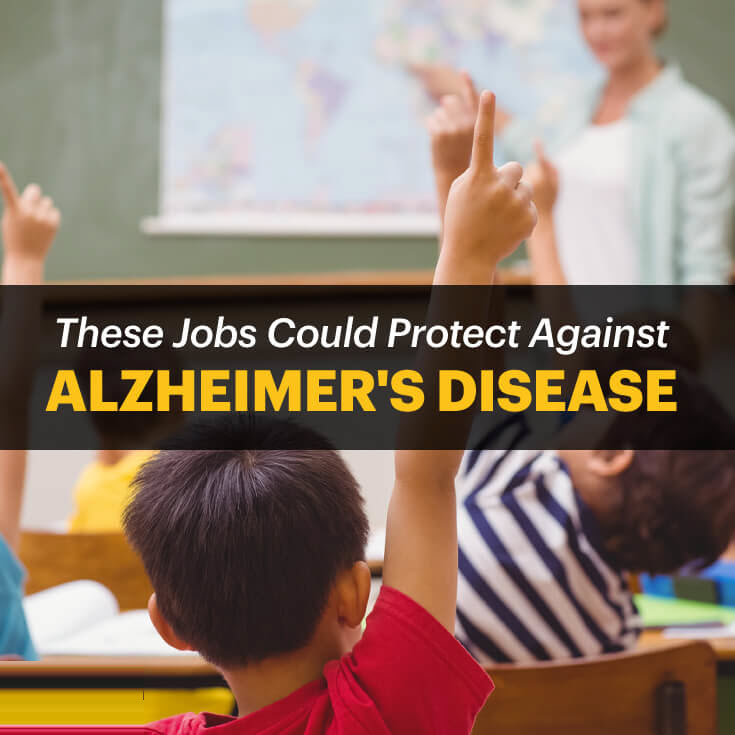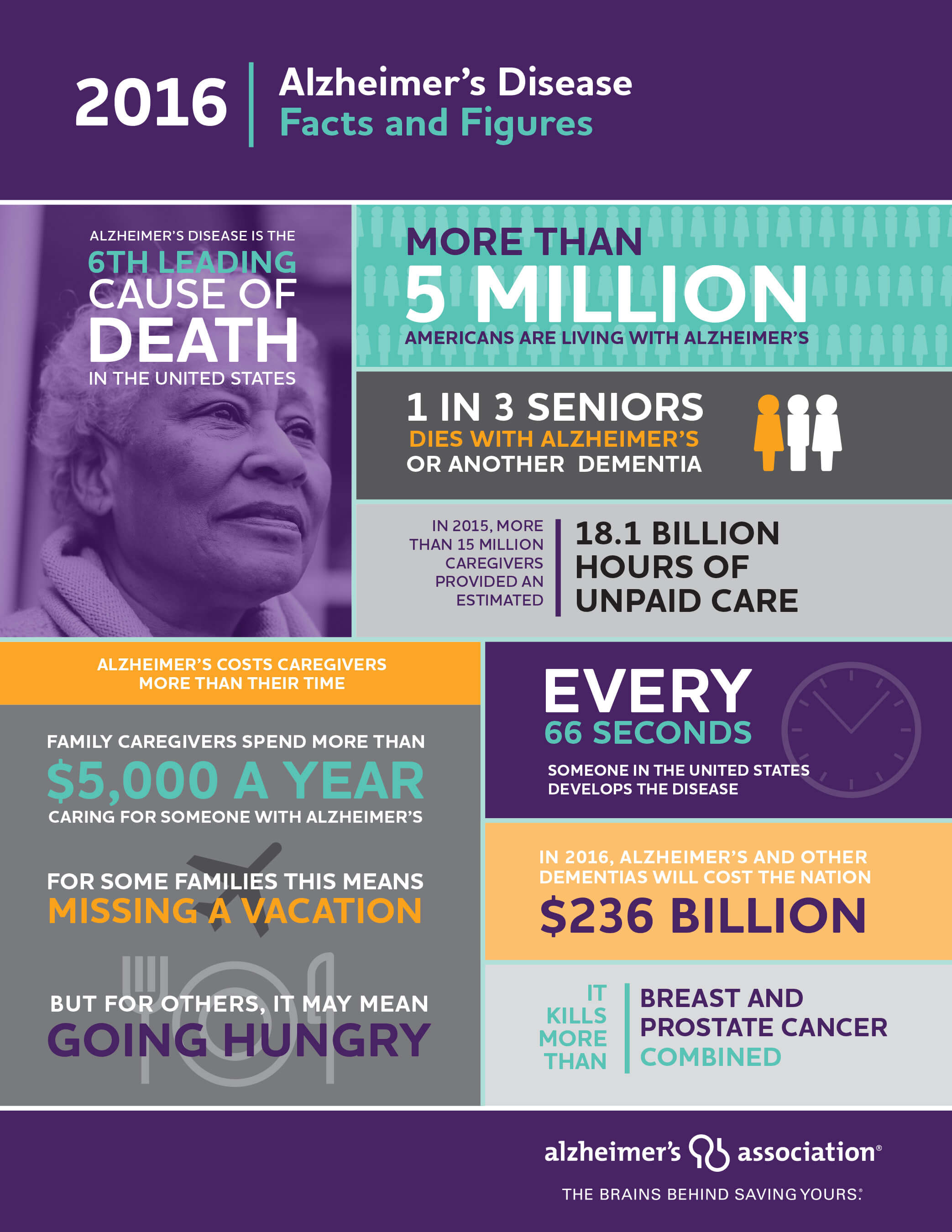Alzheimer’s Disease
New data released at the largest dementia conference in the world suggests that specific jobs could protect against Alzheimer’s disease,
a further clue is providing insight on natural ways social interaction could offer protection and offset the damage that fuels the epidemic.
This compelling research shows that pills alone are not going to pull us out of the Alzheimer’s epidemic.
Today, more than 5 million people in the U.S. are living with the disease, a condition where lifestyle and everyday choices can play a huge factor.
Take this, for instance. A recent small breakthrough study published in the journal Aging found using a comprehensive, personalized approach,
including a diet rich in brain foods and a lifestyle utilizing the benefits of exercise, actually reversed symptoms of Alzheimer’s disease.
The results were so robust and sustained that many of the study participants were able to return to work.
In the latest evidence unveiled at the 2016 Alzheimer’s Association International Conference,
researchers found people with formal education and complex jobs seemed to enjoy protection from Alzheimer’s,
perhaps because their brains have high degrees of “cognitive reserve” and are better equipped to withstand damage.
The idea is that by more intensively using their brains over the years, they form more connections between brain cells and are more resilient during times of damage down the line.
Scientists define cognitive reserve as the brain’s ability to maintain function while withstanding brain cell and tissue damage.
Maria C. Carrillo, Ph.D., Alzheimer’s Association chief science officer, had this to say:
As each new study emerges, we further understand just how powerful cognitive reserve can be in protecting the brain from disease. As we’ve heard at AAIC this year, formal education and complex occupation could potentially do more than just slow cognitive decline – they may actually help compensate for the cognitive damage done by bad diet and small vessel disease in the brain. In metaphorical terms, we can see how cognitive reserve is taking on super power status.
It is becoming increasingly clear that in addition to searching for pharmacological treatments, we need to address lifestyle factors to better treat and ultimately prevent Alzheimer’s and other dementias.
The Alzheimer’ s-Jobs Connection
To investigate cognitive reserve, researchers looked at the dietary habits, social engagement, and job complexity of 351 older adults.
Scientists say the worst cognitive decline in people adhering to a more traditional Western diet, also known as the Standard American Diet.
This type of diet is rich in white potatoes, red and processed meat, sugar, white bread, and processed foods.
Interestingly, those who ate the toxic standard American diet but also lived a mentally stimulating lifestyle enjoyed protection from cognitive decline.
In separate research, scientists were able to show that people who work with people — not data or things — we’re able to tolerate better brain damage related to Alzheimer’s Disease.
They also maintained better cognitive function. People in these roles include teachers, doctors, and social workers. All sorts of jobs, though, involve social interaction.
And remember, you can take on more social hobbies or volunteer roles after work to connect if you’re in a more “data or things” type of character at work.
Elizabeth Boots, research specialist, and colleagues at the Wisconsin Alzheimer’s Disease Research Center and Wisconsin Alzheimer’s Institute, had this to say:
These findings indicate that participants with higher occupational complexity are able to withstand pathology associated with Alzheimer’s and cerebrovascular disease and perform at a similar cognitive level as their peers. This association is primarily driven by work with people, rather than data or things. These analyses underscore the importance of social engagement in the work setting for building resilience to Alzheimer’s disease. (3)
Final Thoughts on Jobs & Alzheimer’s Disease
As we are increasingly learning, we have so much power over Alzheimer’s Disease.
Although many of us have already lost loved ones to the disease in the past, and for this, I am genuinely sorry, it is empowering to know that taking steps toward preventing and healing this disease is happening now.
What we eat, how we move, and, yes, how we exercise our minds matters.
Engage your body, engage your social self. If you sit behind a desk most of the day, find social activities to be a part of in your leisure time.
Sports or walking with a group of friends is a great way to get both exercise and social engagement (and accountability to make sure you’re showing up for your workouts)!
Humans are social creatures.
The more we remove ourselves from each other, the more we’re hurting.
Just as we’re making efforts to eat healthier and exercise more, let’s also take that extra step to connect more.
As we’re learning from science, it matters. Our brains — and hearts — want us to connect!










